Email marketing for ecommerce is one of the most powerful tools in the digital marketing toolkit. It allows online businesses to connect directly with their customers, build relationships, promote products, and drive repeat purchases. With a carefully crafted email strategy, e-commerce brands can increase sales, improve customer loyalty, and grow their brand without spending heavily on ads.
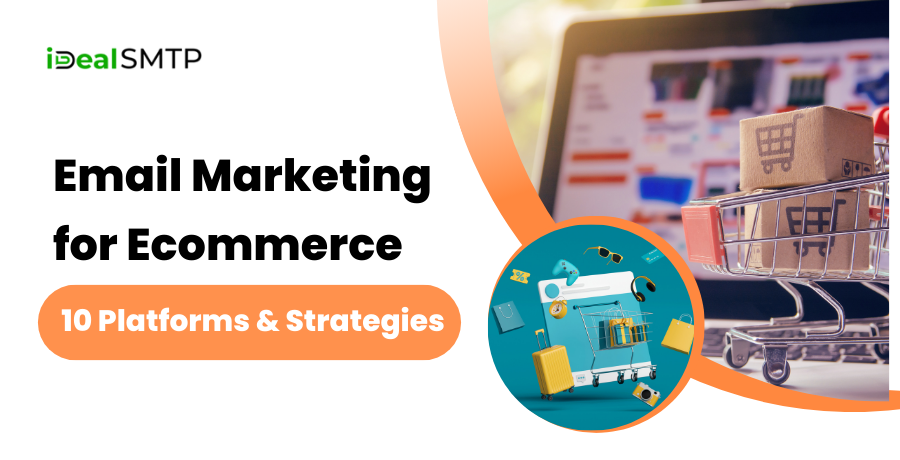
Email marketing works well because it is personal, cost-effective, and direct. Unlike social media or search ads, emails land directly in the customer’s inbox, allowing you to speak one-on-one with your audience. And when done right, it doesn’t just feel like marketing it feels like communication.
Table of Contents
Pricing
| Trail Plan | Standard Plan | Premium Plan | Professional Plan |
| $50 | $145 | $185 | $225 |
| Sending Limit | Sending Limit | Sending Limit | Sending Limit |
| 1000 Emails/Hour | 1500 Emails/Hour | 3000 Emails/Hour | 5000 Emails/Hour |
Why Email Marketing Is Crucial for E-commerce
The e-commerce industry is highly competitive. With thousands of brands offering similar products, it becomes difficult to stand out. This is where email marketing for ecommerce shines. It gives businesses a way to maintain constant engagement with their customers even after they’ve made a purchase.
Email marketing helps in multiple ways. It can recover abandoned carts, welcome new subscribers, share promotional offers, announce new arrivals, and even collect feedback. It also lets brands segment their audience and deliver personalized content, increasing the chance of conversion.
Moreover, email marketing services are often more affordable than paid ads or influencer marketing. The return on investment (ROI) is significantly higher because you are speaking directly to a warm audience of people who have already shown interest in your brand.
Understanding the Basics of Email Marketing
Email marketing is the act of sending promotional messages to people in mass quantities via email. In e-commerce, this usually means sending newsletters, promotions, or product updates to existing customers or subscribers.
To get started, businesses need three things: a reliable email list, a well-planned content strategy, and the right email marketing platforms for ecommerce. The list includes people who have agreed to receive emails from the brand, usually after signing up on the website or making a purchase.
Email content should provide value. This can be in the form of product recommendations, exclusive offers, or helpful tips. And the platform helps you automate, personalize, and track the performance of your emails.
How to Build an Email List for E-commerce
The success of email marketing for ecommerce largely depends on the quality of your email list. A larger list doesn’t always mean better results. What’s more important is having people who are genuinely interested in your products.
To build an email list, e-commerce brands often use signup forms on their websites. These can appear on the homepage, during checkout, or as popups offering discounts for first-time buyers. You can also use landing pages, social media promotions, or referral programs to grow your list.
It’s important to follow ethical practices here. Never buy email lists, as they often contain unqualified leads and can damage your sender reputation. Always use a double opt-in method to ensure the subscriber wants to hear from you.
Choosing the Right Email Marketing Platforms for Ecommerce
Not all email platforms are created equal. Some are better suited for bloggers or small businesses, while others are built specifically for e-commerce. Choosing the right email marketing platforms for ecommerce can make your campaigns more effective and easier to manage.
1. iDealSMTP
iDealSMTP offers strong SMTP services with high inbox deliverability, making it ideal for brands focused on volume and transactional email control.
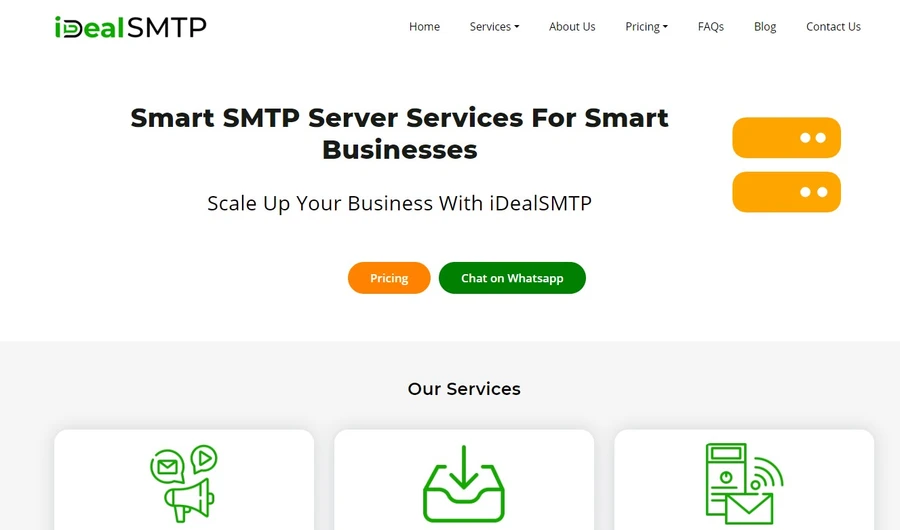
Key Features:
- Scalable bulk email infrastructure
- Dedicated IP options for better deliverability
- Affordable pricing for growing e-commerce stores
- Warm-up tools and IP reputation management
2. SMTPget
SMTPget provides a powerful backend SMTP engine ideal for e-commerce brands that want to control their infrastructure or run email marketing at scale.
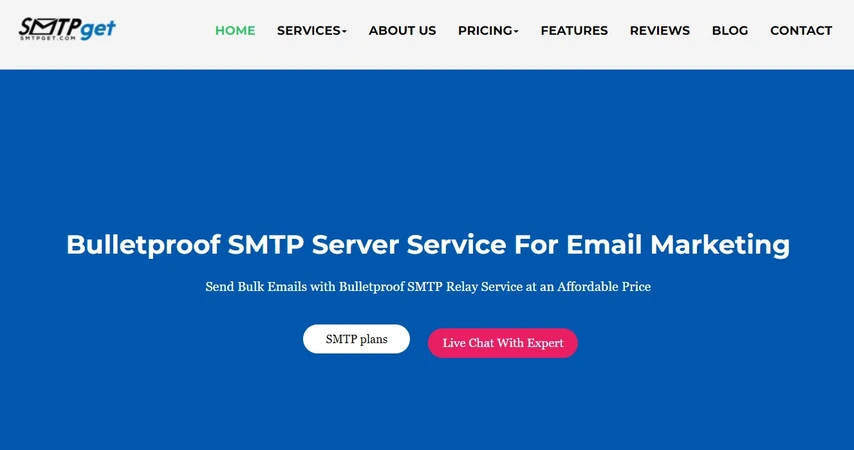
Key Features:
- Easy SMTP integration with CRMs, e-commerce platforms
- IP warm-up and reputation tools
- Custom domain and SPF/DKIM support
- Compatible with major email marketing apps
3. Digitalaka™
Digitalaka™ is a smart email marketing platform tailored for businesses that want results without overcomplicating things. It’s known for exceptional support and good inbox placement.
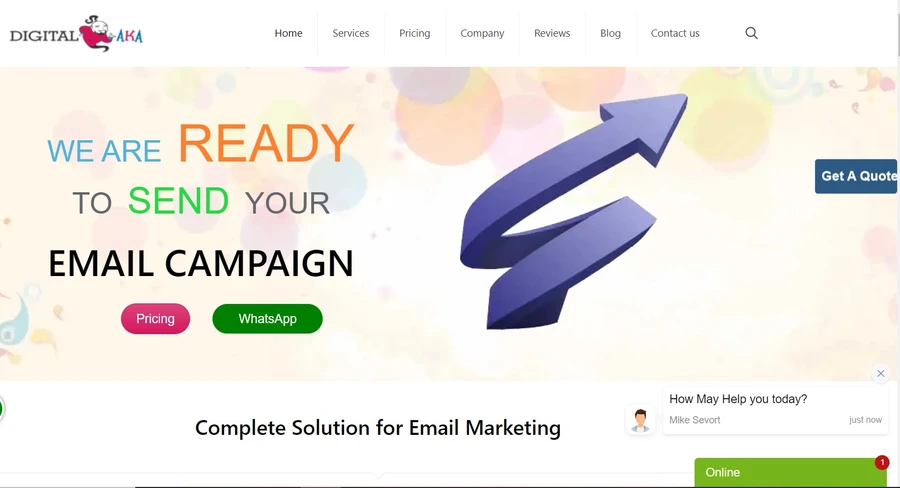
Key Features:
- High-deliverability SMTP solutions
- Smart list segmentation
- GDPR and CAN-SPAM compliant
- Email warm-up and sender reputation protection
4. SMTPmart
SMTPmart is optimized for cold email marketers, affiliate marketers, and e-commerce brands using outbound campaigns.
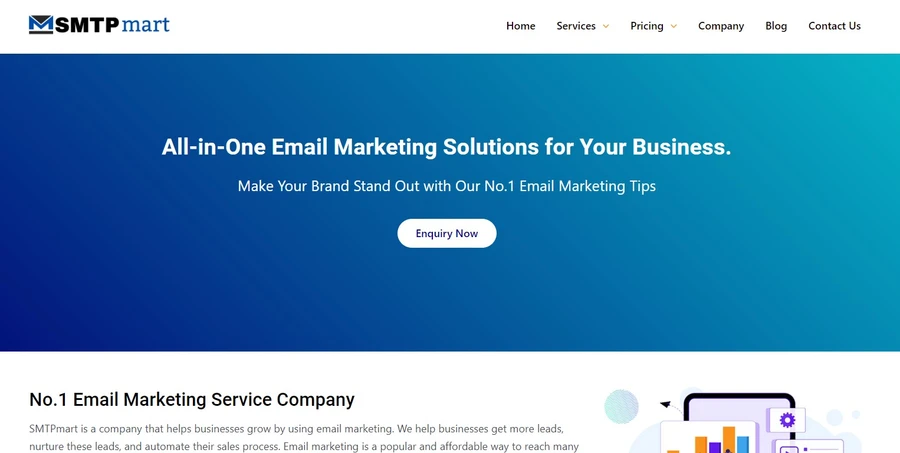
Key Features:
- Bulk email server setups
- Domain/IP reputation monitoring
- SMTP relay and email tracking
- Affordable plans with custom configurations
5. Mailchimp
Mailchimp is user-friendly and has evolved into a full-service marketing platform. Its free plan is perfect for small shops just starting.
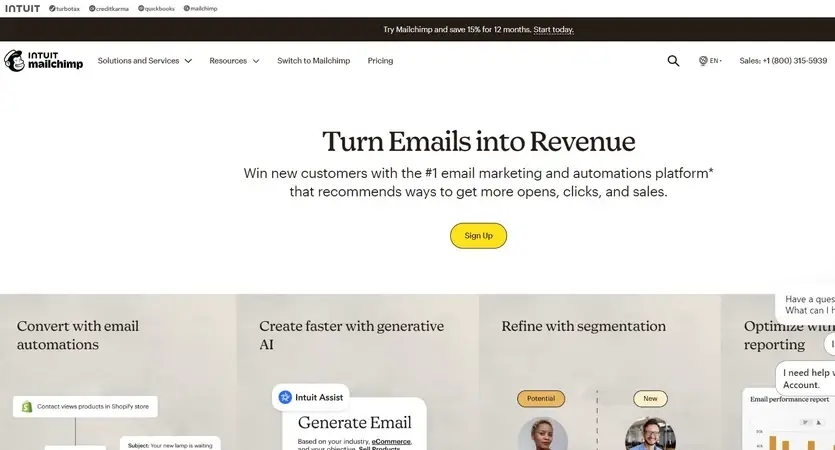
Key Features:
- Drag-and-drop email builder
- E-commerce integrations
Basic automation and reporting
6. Klaviyo
Klaviyo is tailored for e-commerce and offers deep integrations with platforms like Shopify, BigCommerce, and WooCommerce. Its automation, segmentation, and predictive analytics help increase ROI significantly.
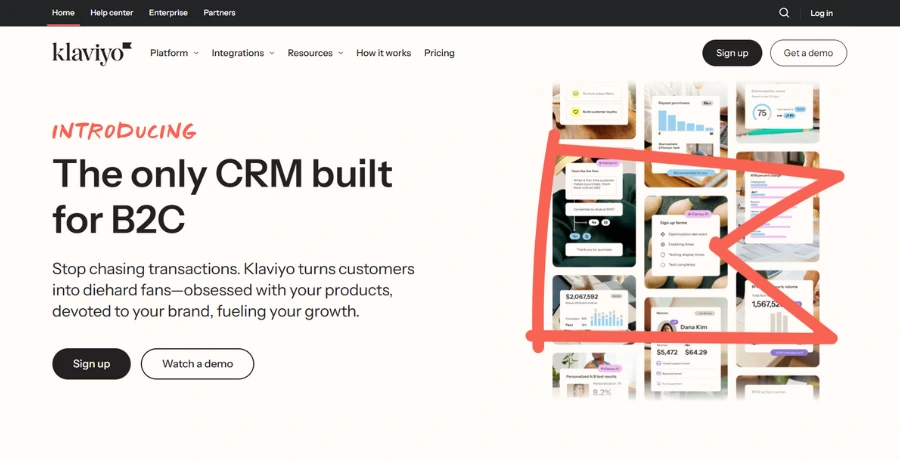
Key Features:
- Pre-built e-commerce flows (cart abandonment, win-back, etc.)
- Dynamic product recommendations
- Real-time analytics
7. ActiveCampaign
ActiveCampaign blends CRM with email automation, allowing e-commerce stores to build advanced customer journeys.
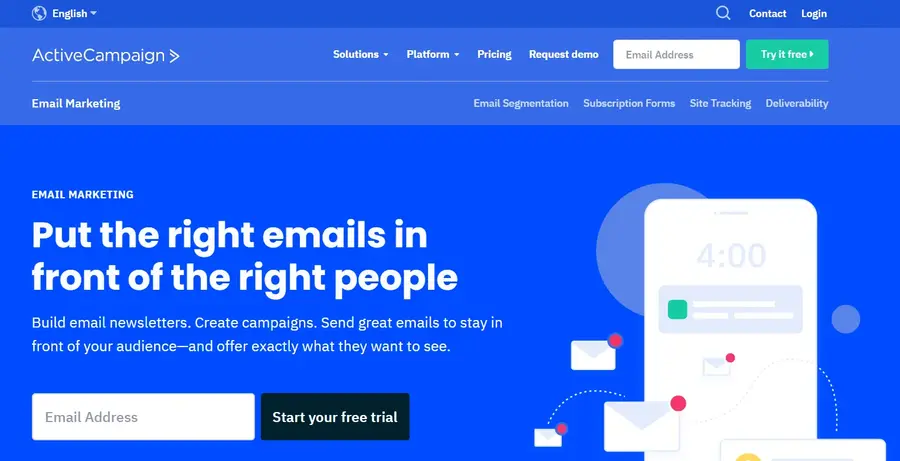
Key Features:
- Dynamic content based on purchase behavior
- Advanced conditional automation
- CRM features for abandoned cart follow-ups
8. Sendinblue (Brevo)
Sendinblue offers a generous free plan and powerful email + SMS capabilities.
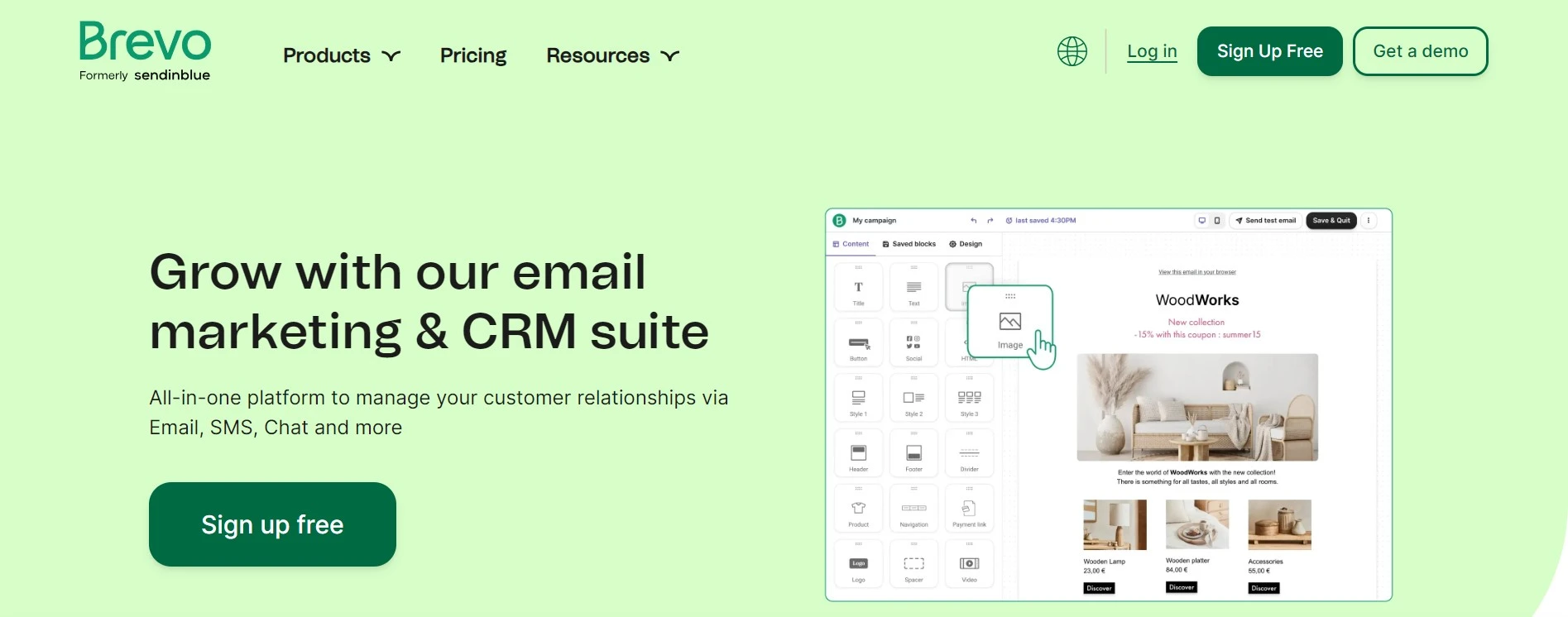
Key Features:
- Transactional and promotional emails
- SMS and WhatsApp integration
- Real-time reporting dashboard
9. ConvertKit
While ConvertKit started as a creator-focused tool, its automation is now useful for small product stores.
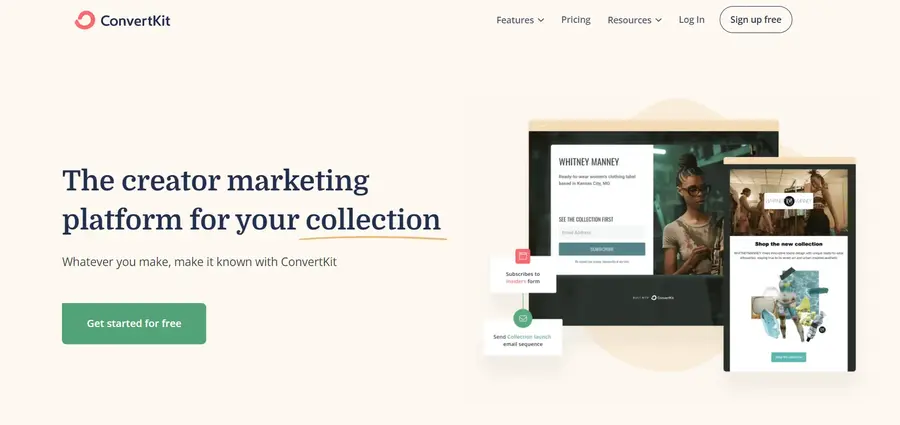
Key Features:
- Clean visual automation builder
- Tag-based segmentation
- Integrated product selling features
10. MailerLite
MailerLite is great for beginners who want to launch e-commerce newsletters or simple automation.
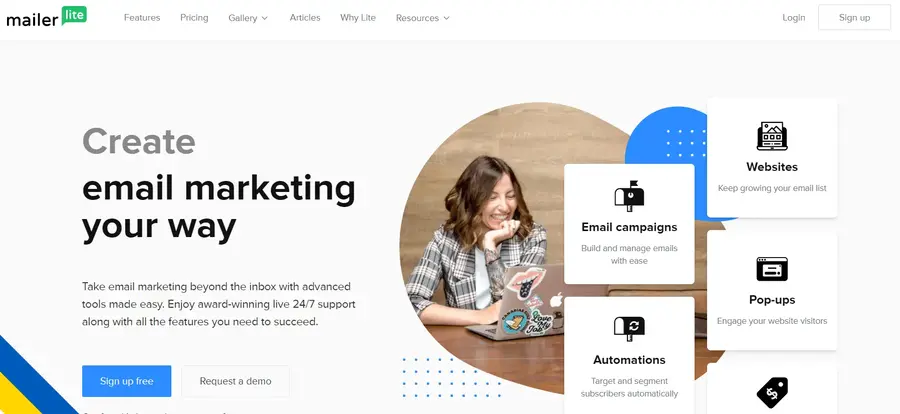
Key Features:
- Drag-and-drop builder
- Landing page creation
- Lightweight automation
When choosing a platform, look for integrations with your e-commerce store (like Shopify, WooCommerce, or Magento), easy-to-use templates, strong customer support, and reporting tools. Some platforms even provide AI-powered recommendations to help you improve performance.
Creating Effective E-commerce Email Campaigns
Once your email list and platform are ready, it’s time to start crafting your campaigns. Each campaign should have a specific goal. Whether it’s to drive sales, increase website visits, or re-engage inactive users, a clear objective will guide your message.
Start with a compelling subject line. This is the first thing your customers see, and it determines whether they open your email or not. Keep it short, interesting, and relevant to your audience.
Inside the email, include clear visuals, simple language, and one main call-to-action. Whether you want the reader to click a product link, use a discount code, or explore a new collection, make it obvious what they should do next.
Types of Emails for E-commerce Brands
There are many types of emails you can send to customers. The most common include welcome emails, product recommendations, promotional offers, order confirmations, and cart abandonment emails.
Welcome emails are usually sent right after someone signs up. This is your chance to make a great first impression. Offer a discount or introduce your bestsellers to encourage a first purchase.
Cart abandonment emails are very effective in recovering lost sales. Many customers add products to their cart but don’t complete the checkout. A gentle reminder, sometimes with a small incentive, can bring them back to finish the purchase.
Post-purchase emails are also valuable. Thank customers for their order, suggest related products, or ask for a review. This builds trust and encourages repeat purchases.
The Role of Personalization in Email Marketing
One of the reasons email marketing services are so effective for e-commerce is the ability to personalize content. Personalization means using customer data to tailor the message to each person.
This can be as simple as using the customer’s first name or as advanced as recommending products based on past purchases. Most email marketing platforms for ecommerce allow you to segment your audience by location, buying behavior, or browsing history.
Personalized emails perform better. They have higher open rates, click-through rates, and conversion rates. Customers are more likely to engage with content that feels relevant to their interests.
Automation: Saving Time While Driving Sales
Automation is another powerful feature of email marketing for ecommerce. It allows you to set up emails that are triggered by specific actions, like signing up, making a purchase, or abandoning a cart.
For example, you can create a welcome series that introduces your brand over several days. Or you can send a re-engagement email to customers who haven’t bought in a while.
Email automation not only saves time but also ensures you’re reaching customers at the most relevant moments. Once set up, these emails run on autopilot, working for you 24/7.
Analyzing Your Email Campaigns
It’s important to measure the results of your email campaigns. This helps you understand what’s working and what needs improvement.
Most email marketing services provide reports on open rates, click rates, conversions, and revenue generated. These metrics tell you how many people opened your email, clicked on a link, and made a purchase.
You can also perform A/B tests to compare different subject lines, images, or offers. Over time, this helps you fine-tune your strategy and get better results from your campaigns.
Staying Compliant with Email Marketing Laws
When using email marketing platforms for ecommerce, it’s important to follow the law. This includes getting proper consent before emailing someone, including an unsubscribe link in every email, and protecting customer data.
Laws like GDPR in Europe and CAN-SPAM in the U.S. outline clear rules for sending marketing emails. By staying compliant, you not only avoid penalties but also build trust with your audience.
Benefits of Email Marketing Services for E-commerce
Email marketing services offer many benefits to e-commerce brands. They make it easy to design, send, and analyze campaigns without needing technical skills. They also allow for automation, segmentation, personalization, and real-time reporting.
These services often come with pre-designed templates that are optimized for mobile devices. They also support A/B testing, which lets you try different versions of an email to see which one performs better.
Another major benefit is scalability. Whether you have 100 subscribers or 100,000, email marketing services can handle your needs efficiently.
Common Mistakes to Avoid
While email marketing for ecommerce is powerful, there are common mistakes that can reduce its effectiveness. One mistake is sending too many emails. This can annoy your subscribers and lead to high unsubscribe rates.
Another mistake is not segmenting your audience. Sending the same message to everyone often leads to poor engagement. Instead, divide your list into segments based on behavior or preferences.
Also, avoid spammy subject lines or misleading content. Be honest and respectful in your communication. Always provide value in every email you send.
Future Trends in E-commerce Email Marketing
The future of email marketing for ecommerce looks exciting. New technologies are making emails smarter, more interactive, and more relevant than ever before.
Interactive emails with embedded videos, sliders, or product previews are gaining popularity. AI is also playing a bigger role, helping brands send emails at the best time, with the best message, to the right person.
Another trend is omnichannel marketing. Email will continue to integrate with SMS, social media, and push notifications to create a seamless shopping experience across all platforms.
Conclusion
Email marketing for ecommerce is not just a trend, it’s a proven strategy that delivers results. With the right email marketing platforms for ecommerce, you can build stronger relationships with your customers, increase sales, and grow your brand effectively.
Whether you’re just starting or looking to improve your existing efforts, email marketing services provide the tools and insights you need to succeed. The key is to keep your emails valuable, personal, and consistent.
Invest in building a strong email list, understand your audience, and use automation to your advantage. By doing so, your e-commerce business will be better positioned for long-term growth in a highly competitive market.







